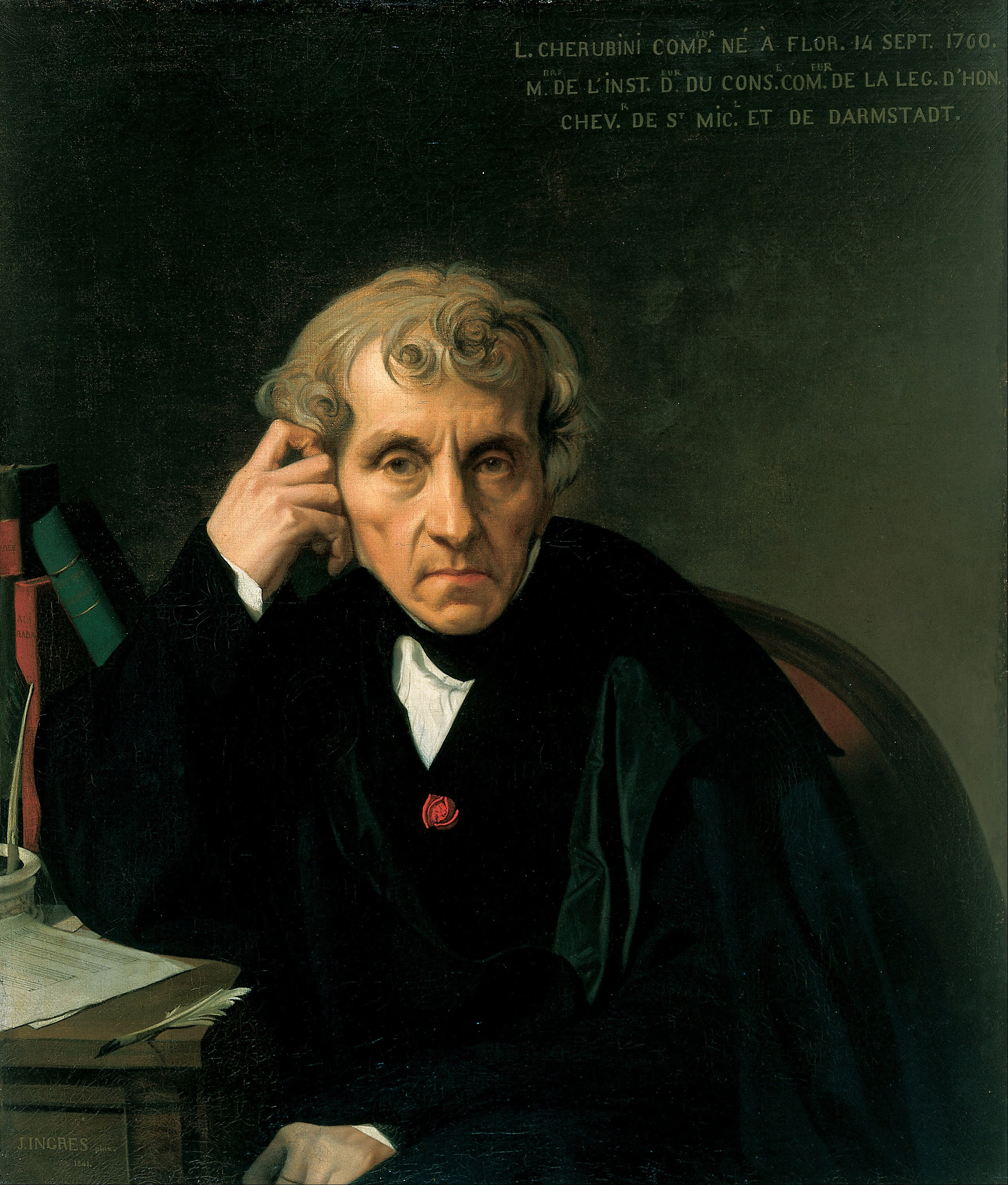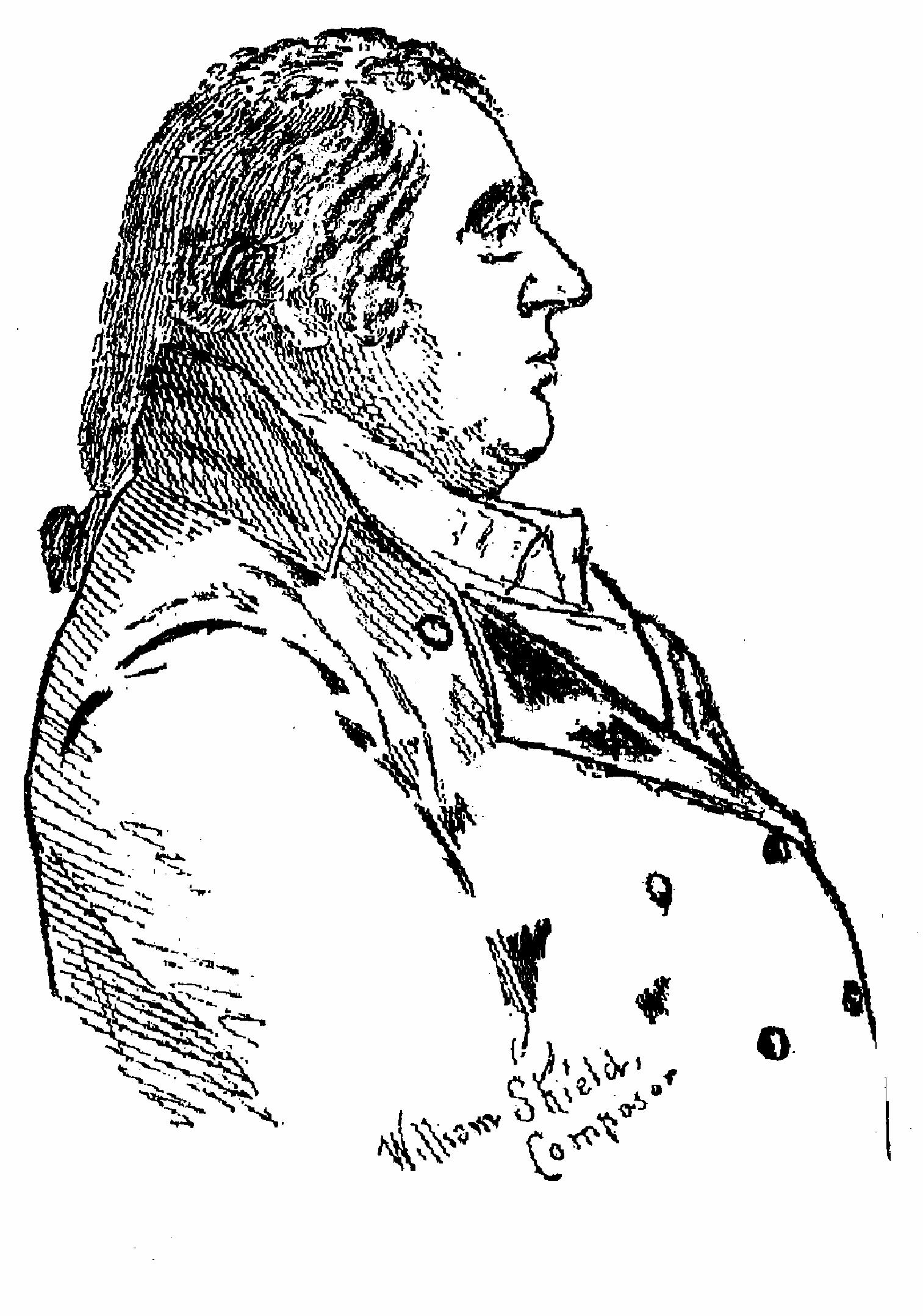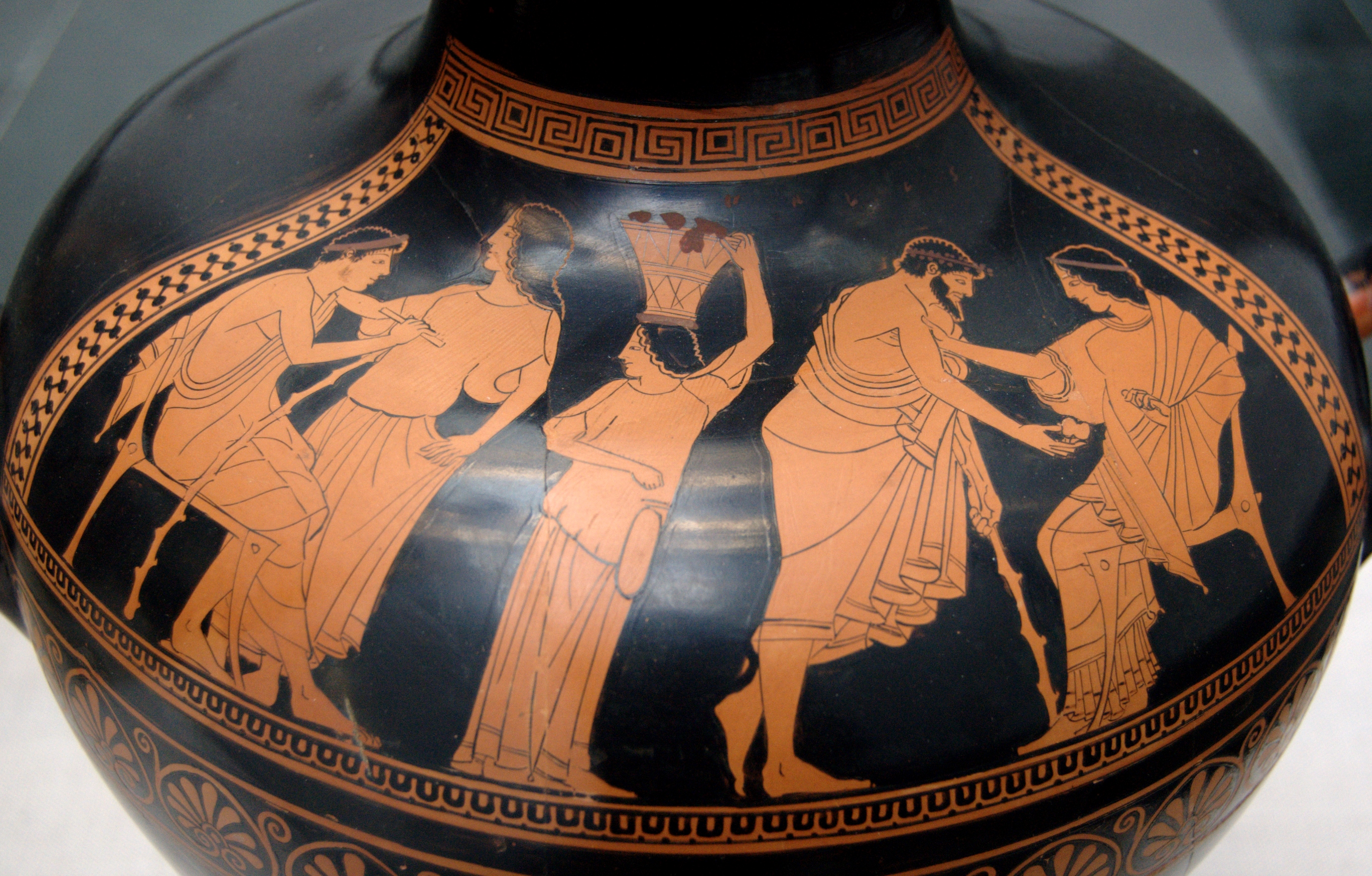|
Anacréon (Cherubini)
''Anacréon, ou L'amour fugitif'' is an opera-ballet in two acts by Luigi Cherubini with a French libretto by C. R. Mendouze. It was premiered on 4 October 1803 by the Paris Opéra at the Salle Montansier. The choreography was by Pierre-Gabriel Gardel. The work proved to be a complete failure, ending its run on 1 January 1804 after only seven performances. The subject matter, a love affair of the Ancient Greek poet Anacreon, was completely alien to the spirit of the time. One critic complained that in his protagonist Cherubini had represented ''"un vieux debauché déguisé en héros d'opéra"'' ("an old debauchee disguised as an opera hero"). The overture was praised by Weber and Berlioz and has frequently been recorded. The complete opera was revived by the Italian radio company RAI in 1973 and on stage at La Scala in 1983 with Gianandrea Gavazzeni conducting. Roles Synopsis :Place: The Greek city of Teos in ancient Ionia Act 1 The young hetaira Corine is in love with the ... [...More Info...] [...Related Items...] OR: [Wikipedia] [Google] [Baidu] |
Cupid
In classical mythology, Cupid (Latin Cupīdō , meaning "passionate desire") is the god of desire, lust, erotic love, attraction and affection. He is often portrayed as the son of the love goddess Venus (mythology), Venus and the god of war Mars (mythology), Mars. He is also known in Latin as ' ("Love"). His interpretatio graeca, Greek counterpart is Eros.''Larousse Desk Reference Encyclopedia'', The Book People, Haydock, 1995, p. 215. Although Eros is generally portrayed as a slender winged youth in Classical Greece, Classical ancient Greek art, Greek art, during the Hellenistic period, he was increasingly portrayed as a chubby boy. During this time, his iconography acquired the bow and arrow that represent his source of power: a person, or even a deity, who is shot by Cupid's arrow is filled with uncontrollable desire. In myths, Cupid is a minor character who serves mostly to set the plot in motion. He is a main character only in the tale of Cupid and Psyche, when wounded by hi ... [...More Info...] [...Related Items...] OR: [Wikipedia] [Google] [Baidu] |
French-language Operas
French opera is one of Europe's most important operatic traditions, containing works by composers of the stature of Rameau, Berlioz, Gounod, Bizet, Massenet, Debussy, Ravel, Poulenc and Messiaen. Many foreign-born composers have played a part in the French tradition as well, including Lully, Gluck, Salieri, Cherubini, Spontini, Meyerbeer, Rossini, Donizetti, Verdi and Offenbach. French opera began at the court of Louis XIV of France with Jean-Baptiste Lully's ''Cadmus et Hermione'' (1673), although there had been various experiments with the form before that, most notably '' Pomone'' by Robert Cambert. Lully and his librettist Quinault created ''tragédie en musique'', a form in which dance music and choral writing were particularly prominent. Lully's most important successor was Rameau. After Rameau's death, the German Gluck was persuaded to produce six operas for the Paris, Parisian stage in the 1770s. They show the influence of Rameau, but simplified and with greater foc ... [...More Info...] [...Related Items...] OR: [Wikipedia] [Google] [Baidu] |
1803 Operas
Eighteen or 18 may refer to: * 18 (number), the natural number following 17 and preceding 19 * one of the years 18 BC, AD 18, 1918, 2018 Film, television and entertainment * ''18'' (film), a 1993 Taiwanese experimental film based on the short story ''God's Dice'' * ''Eighteen'' (film), a 2005 Canadian dramatic feature film * 18 (British Board of Film Classification), a film rating in the United Kingdom, also used in Ireland by the Irish Film Classification Office * 18 (''Dragon Ball''), a character in the ''Dragon Ball'' franchise * "Eighteen", a 2006 episode of the animated television series ''12 oz. Mouse'' Music Albums * ''18'' (Moby album), 2002 * ''18'' (Nana Kitade album), 2005 * '' 18...'', 2009 debut album by G.E.M. Songs * "18" (5 Seconds of Summer song), from their 2014 eponymous debut album * "18" (One Direction song), from their 2014 studio album ''Four'' * "18", by Anarbor from their 2013 studio album ''Burnout'' * "I'm Eighteen", by Alice Cooper commonly re ... [...More Info...] [...Related Items...] OR: [Wikipedia] [Google] [Baidu] |
Operas By Luigi Cherubini
Opera is a form of theatre in which music is a fundamental component and dramatic roles are taken by singers. Such a "work" (the literal translation of the Italian word "opera") is typically a collaboration between a composer and a librettist and incorporates a number of the performing arts, such as acting, scenery, costume, and sometimes dance or ballet. The performance is typically given in an opera house, accompanied by an orchestra or smaller musical ensemble, which since the early 19th century has been led by a conductor. Although musical theatre is closely related to opera, the two are considered to be distinct from one another. Opera is a key part of the Western classical music tradition. Originally understood as an entirely sung piece, in contrast to a play with songs, opera has come to include numerous genres, including some that include spoken dialogue such as '' Singspiel'' and '' Opéra comique''. In traditional number opera, singers employ two styles of ... [...More Info...] [...Related Items...] OR: [Wikipedia] [Google] [Baidu] |
Google Books
Google Books (previously known as Google Book Search, Google Print, and by its code-name Project Ocean) is a service from Google Inc. that searches the full text of books and magazines that Google has scanned, converted to text using optical character recognition (OCR), and stored in its digital database.The basic Google book link is found at: https://books.google.com/ . The "advanced" interface allowing more specific searches is found at: https://books.google.com/advanced_book_search Books are provided either by publishers and authors through the Google Books Partner Program, or by Google's library partners through the Library Project. Additionally, Google has partnered with a number of magazine publishers to digitize their archives. The Publisher Program was first known as Google Print when it was introduced at the Frankfurt Book Fair in October 2004. The Google Books Library Project, which scans works in the collections of library partners and adds them to the digital invent ... [...More Info...] [...Related Items...] OR: [Wikipedia] [Google] [Baidu] |
Théodore Lajarte
Théodore Lajarte (10 July 1826 – 20 June 1890) was a French musicologist, librarian, and composer.Huebner 1992. Early years Lajarte was born in Bordeaux. His full name has been given as Théodore Édouard Dufaure de Lajarte. He studied at the Conservatoire de Paris under Aimé Leborne and soon thereafter composed a large number of operettas, none of which have survived. Librarian and musicologist He is best remembered for his position as an archivist at the Paris Opera. After his appointment in 1873 as second librarian at the Paris Opera Library, he organized the theatre's historical scores and parts, publishing a chronological inventory of scores under the title ''Bibliothèque musicale du théâtre de l'Opéra'' in 1876 with a corrected and completed edition in 1878. He continued working at the library until 1890.Pitou 1990, p. 734. As a musicologist, he contributed articles on music to newspapers and published reductions for piano and singing of old French operas and bal ... [...More Info...] [...Related Items...] OR: [Wikipedia] [Google] [Baidu] |
William Shield
William Shield (5 March 1748 – 25 January 1829) was an English composer, violinist and viola, violist. His music earned the respect of Haydn and Beethoven. Life and musical career Shield was born in Swalwell near Gateshead, County Durham, the son of William Shield and his wife, Mary, née Cash. He was first taught music by his father but, after both he and his mother died while Shield was still a child, he was apprenticed to a shipbuilder in South Shields, continuing however to study music with Charles Avison in Newcastle upon Tyne. He became a noted violinist in Newcastle's subscription concerts before moving to Scarborough, England, Scarborough to lead a theatre orchestra. In 1772, he was appointed by Felice Giardini to play violin in the opera at Covent Garden (now the Royal Opera House), and from 1773 he was principal viola, violist there. On 21 February 1776 he was in Durham, where he attended the meeting of the city's masonic lodge at the ''Marquis of Granby'' tavern. ... [...More Info...] [...Related Items...] OR: [Wikipedia] [Google] [Baidu] |
Venus (goddess)
Venus (), , is a Roman goddess, whose functions encompass love, beauty, desire, sex, fertility, prosperity, and victory. In Roman mythology, she was the ancestor of the Roman people through her son, Aeneas, who survived the fall of Troy and fled to Italy. Julius Caesar claimed her as his ancestor. Venus was central to many religious festivals, and was revered in Roman religion under numerous cult titles. The Romans adapted the myths and iconography of her Greek counterpart Aphrodite for Roman art and Latin literature. In the later classical tradition of the West, Venus became one of the most widely referenced deities of Greco-Roman mythology as the embodiment of love and sexuality. She is usually depicted nude in paintings. Etymology The Latin theonym ''Venus'' and the common noun ''venus'' ('love, charm') stem from a Proto-Italic form reconstructed as ''*wenos-'' ('desire'), itself from Proto-Indo-European (PIE) ' ('desire'; cf. Messapic ''Venas'', Old Indic ''vánas'' 'des ... [...More Info...] [...Related Items...] OR: [Wikipedia] [Google] [Baidu] |
Hetaira
Hetaira (plural hetairai (), also hetaera (plural hetaerae ), ( grc, ἑταίρα, "companion", pl. , la, hetaera, pl. ) was a type of prostitute in ancient Greece, who served as an artist, entertainer and conversationalist in addition to providing sexual service. Unlike the rule for ancient Greek women, hetairas would be highly educated and were allowed in the symposium. Summary Traditionally, historians of ancient Greece have distinguished between ''hetairai'' and ''pornai'', another class of prostitute in ancient Greece. In contrast to pornai, who provided sex for numerous clients in brothels or on the street, hetairai were thought to have had only a few men as clients at any one time, to have had long-term relationships with them, and to have provided companionship and intellectual stimulation as well as sex. For instance, Charles Seltman wrote in 1953 that "hetaeras were certainly in a very different class, often highly educated women". More recently, however, historia ... [...More Info...] [...Related Items...] OR: [Wikipedia] [Google] [Baidu] |
Ionia
Ionia () was an ancient region on the western coast of Anatolia, to the south of present-day Izmir. It consisted of the northernmost territories of the Ionian League of Greek settlements. Never a unified state, it was named after the Ionian tribe who had settled in the region before the Archaic period. Ionia proper comprised a narrow coastal strip from Phocaea in the north near the mouth of the river Hermus (now the Gediz), to Miletus in the south near the mouth of the river Maeander, and included the islands of Chios and Samos. It was bounded by Aeolia to the north, Lydia to the east and Caria to the south. The cities within the region figured large in the strife between the Persian Empire and the Greeks. Ionian cities were identified by mythic traditions of kinship and by their use of the Ionic dialect, but there was a core group of twelve Ionian cities who formed the Ionian League and had a shared sanctuary and festival at Panionion. These twelve cities were (from ... [...More Info...] [...Related Items...] OR: [Wikipedia] [Google] [Baidu] |
Teos
Teos ( grc, Τέως) or Teo was an ancient Greek city on the coast of Ionia, on a peninsula between Chytrium and Myonnesus. It was founded by Minyans from Orchomenus, Ionians and Boeotians, but the date of its foundation is unknown. Teos was one of the twelve cities which formed the Ionian League. The city was situated on a low hilly isthmus. Its ruins are located to the south of the modern town of Sığacık in the Seferihisar district of Izmir Province, Turkey. History Pausanias writes that the city was founded by Minyans from Orchomenus under the leadership of Athamas, a descendant of Athamas the son of Aeolus. Later on they were joined by Ionians and more colonists from Athens and Boeotia. Because it was founded by Athamas, Anacreon also called it Athamantis (Ἀθαμαντίς). Teos was a flourishing seaport with two fine harbours until Cyrus the Great invaded Lydia and Ionia (c. 546 BC). The Teans found it prudent to retire overseas, to the newly founded colon ... [...More Info...] [...Related Items...] OR: [Wikipedia] [Google] [Baidu] |









